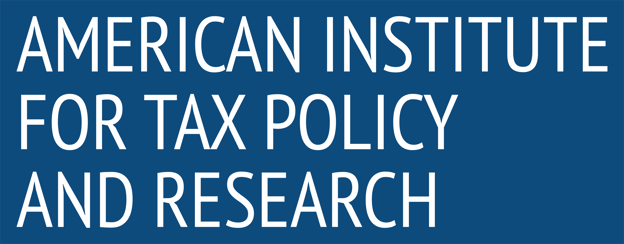RESEARCH
At AITPR, we are committed to advancing knowledge and shaping informed tax policies through rigorous research and analysis. Our research covers a wide range of critical tax issues, from federal and state taxation to corporate, international, and digital economy tax policies. By examining the economic impact of tax laws on businesses, individuals, and government revenue, we provide data-driven insights that support fair, efficient, and growth-oriented tax systems. Explore our key research areas to better understand how tax policy influences economic stability, wealth distribution, and public finance.
How do tax laws shape the economy and government revenue? This research explores the impact of federal tax reforms, including adjustments to income tax rates, deductions, and credits. We examine how these changes affect government revenue, economic growth, fiscal responsibility, and income distribution. By analyzing historical data and future projections, we assess whether tax reforms achieve their intended policy goals or create unintended economic consequences.
Reforming Federal Tax Policy


Corporate Taxation and Business Growth


What role do corporate taxes play in economic development and global competition? This research investigates how corporate tax rates, deductions, and investment incentives influence job creation, wages, and overall business expansion. We analyze policies that affect small businesses, multinational corporations, and startups, assessing whether current tax structures promote long-term economic stability or create barriers to growth. Additionally, we explore tax avoidance strategies and the effectiveness of government efforts to close corporate tax loopholes.
Why do tax burdens differ so much across states? This research focuses on state and local tax policies, including property taxes, sales taxes, and income taxes. We analyze how these variations impact economic competitiveness, business investments, migration patterns, and public services. Our studies provide insights into tax structures that encourage economic development while maintaining adequate funding for essential programs such as education, infrastructure, and public safety.
The State and Local Tax Landscape


Global Taxation and Trade Policy


How do international tax policies affect U.S. businesses and economic relations? This research examines tax treaties, cross-border taxation, tariffs, and multinational tax strategies. We analyze how changes in global tax laws—such as digital services taxes, minimum corporate tax rates, and trade agreements—impact U.S. businesses operating abroad. By comparing taxation strategies across different countries, we assess how international tax policies shape global markets and trade competitiveness.
Can taxation reduce economic inequality while supporting economic growth? This research evaluates the role of progressive taxation, wealth redistribution, and fiscal policy in shaping income mobility and financial stability. We analyze tax policies that target wealth concentration, such as estate taxes, inheritance taxes, and capital gains taxes. Our studies also explore the effectiveness of tax credits and deductions aimed at supporting low- and middle-income families, assessing their long-term impact on reducing poverty and promoting economic opportunity.
Tax Policy and Wealth Distribution


The Link Between Taxes and Economic Growth


Do lower taxes always lead to a stronger economy? This research explores how different tax structures influence GDP, consumer spending, business investment, and economic cycles. We assess whether tax cuts lead to sustained growth or result in revenue shortfalls that weaken public services. Our studies examine historical tax policies and their long-term effects on economic stability, providing insights into the balance between government revenue collection and economic expansion.
How can tax policies address demographic shifts, including declining birth rates and aging populations?
We explore how tax incentives, deductions, and benefits can encourage higher fertility rates, support families, and sustain economic stability as populations age. Our studies investigate on the role of tax credits for childcare, parental leave, and elder care, assessing their effectiveness in counteracting demographic decline. Additionally, we perform international tax policy comparison to identify best practices for sustaining long-term economic growth despite changing population structures.
Tax Policy and Demographic Challenges


Taxation and Non-Profit Sector Transparency


How do tax laws shape the financial transparency and operations of non-profit organizations? We investigate tax policies governing non-profits, focusing on disclosure requirements, tax-exempt status, and financial reporting regulations. By comparing U.S. and international frameworks, we assess how tax laws impact compliance, fraud prevention, and overall trust in the non-profit sector. We also evaluate policy recommendations to improve transparency while ensuring non-profits can continue to serve their communities effectively.
Is Social Security financially sustainable in the long run? This research evaluates payroll tax policies that fund Social Security, Medicare, and other social programs. We analyze potential reforms, such as adjusting payroll tax rates, removing income caps, or expanding benefits, to determine their impact on the economy, government budgets, and retirement security. Our studies also explore the effects of demographic shifts—such as an aging workforce—on the long-term solvency of these programs.
Securing Social Programs Through Payroll Taxes


Tax Compliance, Enforcement, and Evasion


Why do some taxpayers avoid paying their fair share, and how does it impact the economy? This research examines tax compliance trends, enforcement mechanisms, audit strategies, and the size of the tax gap—the difference between taxes owed and taxes paid. We analyze the effectiveness of government efforts to combat tax evasion, such as strengthening IRS enforcement, implementing stricter reporting requirements, and using technology to detect fraudulent activity. Our studies also explore the ethical and legal implications of aggressive tax avoidance strategies employed by corporations and high-net-worth individuals.
Can tax policy be used to combat climate change and promote sustainability? This research focuses on environmental taxation, including carbon taxes, renewable energy incentives, and tax credits for sustainable business practices. We analyze the effectiveness of these policies in reducing carbon emissions, encouraging clean energy investment, and transitioning to a greener economy. Our studies also examine how different countries and states implement green tax policies and their impact on businesses, consumers, and overall environmental outcomes.
Green Tax Policies and Climate Action


Taxation in the Digital Economy


How should governments adapt tax policies for the digital age? This research explores the challenges of taxing digital services, cryptocurrencies, and e-commerce. We analyze the rise of decentralized financial transactions, the global push for digital services taxes, and the tax implications of gig economy workers. Our studies also assess how emerging technologies—such as blockchain and AI—are reshaping financial transactions and regulatory frameworks, requiring policymakers to modernize tax laws to keep pace with technological advancements.


